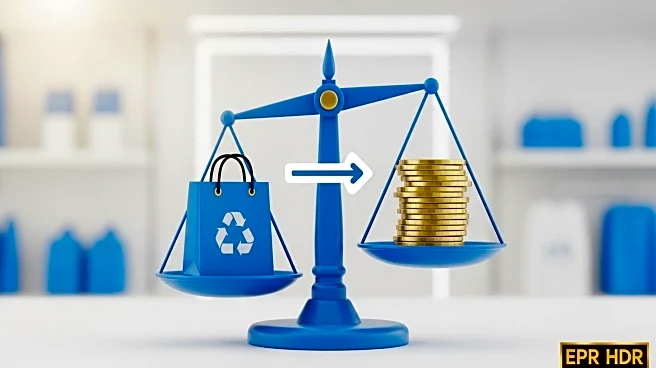What's Happening?
UK retailers are preparing to pass on the majority of costs associated with the new Extended Producer Responsibility (EPR) legislation to consumers. According to the British Retail Consortium (BRC), the EPR scheme, which requires producers to report packaging usage and pay fees based on tonnage, is expected to cost the industry billions. The BRC survey indicates that over 80% of these costs will be transferred to shoppers, adding to inflationary pressures at a time when food inflation is around 5%. Retailers are facing increased administrative burdens due to EPR, with 85% reporting significant compliance challenges. The BRC is advocating for legal restrictions to ensure EPR funds are used for local recycling improvements, emphasizing the need for transparency and effective use of funds.
Why It's Important?
The implementation of EPR legislation is significant as it represents a shift towards the 'polluter pays' principle, aiming to incentivize sustainable packaging practices. However, the financial burden on consumers during a cost-of-living crisis raises concerns about affordability and the effectiveness of the scheme. Retailers are striving to increase recyclable materials and reduce packaging, but the added costs could impact consumer spending and retail profitability. The BRC's call for clarity and legal restrictions highlights the need for a balanced approach that benefits both the environment and consumers, ensuring that funds are used effectively to enhance recycling systems.
What's Next?
The BRC is urging the UK government to provide clearer guidance on the benefits of EPR for consumers and the environment. As retailers continue to adapt to the new regulations, the focus will be on monitoring the impact on consumer prices and evaluating the effectiveness of the scheme in promoting sustainable practices. The government may need to address concerns about transparency and fund allocation to ensure the EPR scheme achieves its intended environmental goals without disproportionately burdening consumers.









